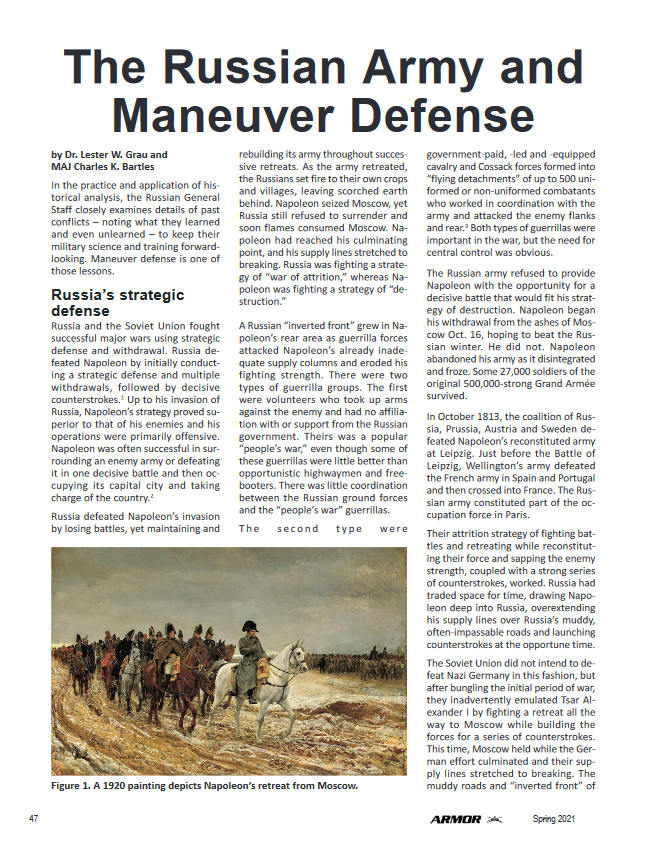(Click image to download brief.)
KEY TAKEAWAYS
In the practice and application of historical analysis, the Russian General Staff closely examines details of past conflicts – noting what they learned and even unlearned – to keep their military science and training forward-looking. Maneuver defense is one of those lessons. Russia’s strategic defense Russia and the Soviet Union fought successful major wars using strategic defense and withdrawal. Russia defeated Napoleon by initially conducting a strategic defense and multiple withdrawals, followed by decisive counterstrokes.1 Up to his invasion of Russia, Napoleon’s strategy proved superior to that of his enemies and his operations were primarily offensive. Napoleon was often successful in surrounding an enemy army or defeating it in one decisive battle and then occupying its capital city and taking charge of the country.2 Russia defeated Napoleon’s invasion by losing battles, yet maintaining and rebuilding its army throughout successive retreats. As the army retreated, the Russians set fire to their own crops and villages, leaving scorched earth behind. Napoleon seized Moscow, yet Russia still refused to surrender and soon flames consumed Moscow. Napoleon had reached his culminating point, and his supply lines stretched to breaking. Russia was fighting a strategy of “war of attrition,” whereas Napoleon was fighting a strategy of “destruction.”

